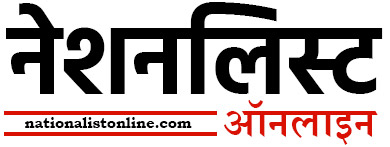Rajesh Singh
The ‘liberal’ discourse following the controversial meet organised by Amnesty International India in Bangalore has been along expected lines. The event turned into a ruckus after a bunch of people raised ‘azadi’ and similar slogans. Apologists of Amnesty and of those who exploited the event to press for dismemberment of India, have been saying things that sound eerily similar to what we had heard during the Jawaharlal Nehru University (JNU) function a few months ago, where too anti-nationalism was on brazen display.
The first point raised in defence of the turn of events is that Amnesty International India is not responsible because some people unconnected with the NGO had raised the offensive slogans towards the end of the function. This is exactly what the JNU student leaders owing allegiance to a students union led by Kanhaiya Kumar too had said.
There is no need here to go into the track record of Amnesty International, and more specifically of its Indian branch. There is sufficient material in the public domain that should shame the organisation. It faces accusations of doublespeak and of going soft on certain groups that even have terrorist links. Regardless of the Government in power at the Centre, it has had one agenda: To discredit India’s image. Can there be amnesty for such action?
But this is a hollow defence. As the organiser, Amnesty India is responsible for the conduct of participants. It is also responsible for the selection of people invited to the show. If any participant, not belonging to Amnesty or from the list of invitees, makes objectionable remarks, it is the duty of the organiser to tick off the offender. If the offence continues, the organisers must ask the offender to leave. Assuming that this does not bear result, the organiser must request the police to intervene.
Amnesty officials did neither of the above, just as the organisers of the JNU event had not acted even when the meet had turned into a platform to eulogise terrorists such as Yakub Memon and Afzal Guru. Their inaction gives rise to the impression that they were comfortable with the developments. Perhaps the anti-India script had been prepared in advance and in the knowledge of at least some members of Amnesty International India.

The second point that defenders of Amnesty have raised is that ‘azadi’ is a general slogan. It is about ‘freedom from hunger’; ‘freedom from exploitation’; ‘freedom from state excesses’ etc etc. Again, this is precisely the same excuse organisers of the JNU event had offered.
If the betterment of society through freedom from such ills was indeed the case, why did Amnesty International India not organise a holistic function to discuss the matter? And, on issues that concern all of India, why was the focus on the human rights of certain sections of the population, and that too from Kashmir? Clearly, the meet was to discuss what has become fashionable among human rights activists: ‘Atrocities’ committed by the Indian state on citizens of Kashmir. Amnesty’s concern for human rights begins and end with this. It does not cover the rights of ordinary citizens who are gunned down by militants, let alone the rights of security personnel who are pelted with stones, whose stations and bunkers are attacked and burned down, and who are locked in vehicles and pushed into a river to drown. In the backdrop of the Kashmir discussion, it does not require a Sherlock Homes to determine what ‘azadi’ meant to those who had raised the slogan at the Bangalore event.
The third point being made is that, while chanting ‘azadi’ may be objectionable (even this acknowledgement comes grudgingly), it is not sedition — a charge under which Amnesty International India has been booked by the Bangalore police. Once more, this is exactly similar to the script that had played out in the JNU case. The ‘this is not sedition’ line has become a convenient tool of deflection from the real issue: Strident anti-nationalism in the garb of freedom of speech.
It is for the legal process to build a case and for the courts to have the final say on whether something constitutes sedition under Section 124(A) of the Indian Penal Code. It is immaterial at this stage to take a stand on the issue of sedition. But neither Amnesty India nor its apologists can escape the fact that the freedom of expression they continue to invoke to justify anti-India sloganeering or activities is not absolute. Even a layman with a cursory understanding of Article 19 of the Constitution of India knows this.
The fourth line of defence for all those who have a problem in acknowledging the insidious campaigns that certain organisations and individuals have been conducting to demean India before a global audience, is that events of the Bangalore kind are actually meant to promote awareness of constitutional obligations among the people. This is ridiculous.
Here we have individuals and organisations that hail the Constitution of India and simultaneously make a mockery of it, in both letter and spirit. The illustrious framers of the Constitution must be turning in their graves today over the exploits of such ‘enlightened’ and ‘liberal’ citizens.
There is no need here to go into the track record of Amnesty International, and more specifically of its Indian branch. There is sufficient material in the public domain that should shame the organisation. It faces accusations of doublespeak and of going soft on certain groups that even have terrorist links. Regardless of the Government in power at the Centre, it has had one agenda: To discredit India’s image. Can there be amnesty for such action?
(The writer is editorial director of nationalistonline.com english)
